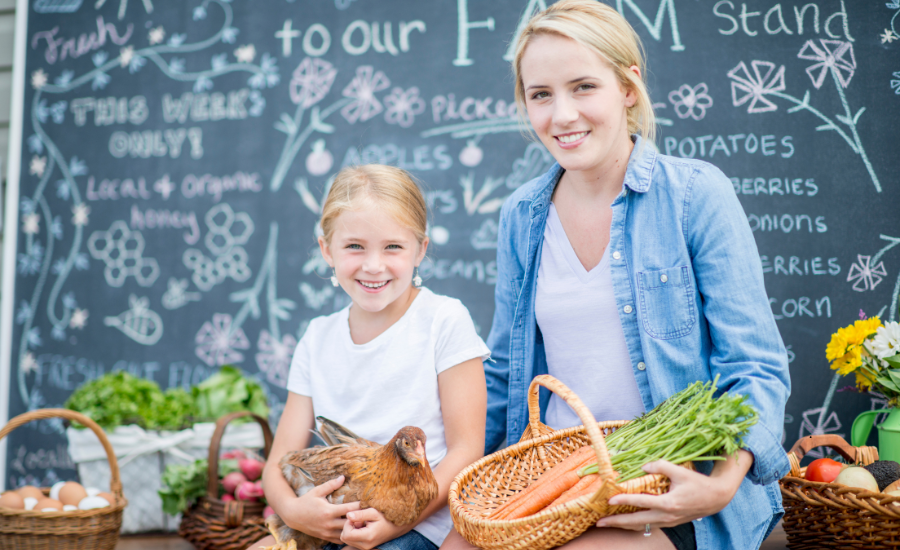Homesteading is more than just a lifestyle—it’s a treasure trove of income possibilities waiting to be tapped into. Every skill you’ve honed, from gardening to food preservation, can be transformed into a money-making venture.
In today’s world, there’s a growing demand for local, organic, and sustainably-produced goods. People crave authentic products and experiences, and your homestead is the perfect place to meet that demand.
Whether you’re looking to earn a little extra cash or launch a full-fledged business, these 10 backyard business ideas will help you make the most of your skills while supporting a self-sufficient lifestyle.
Turning Your Homestead into a Profitable Backyard Business
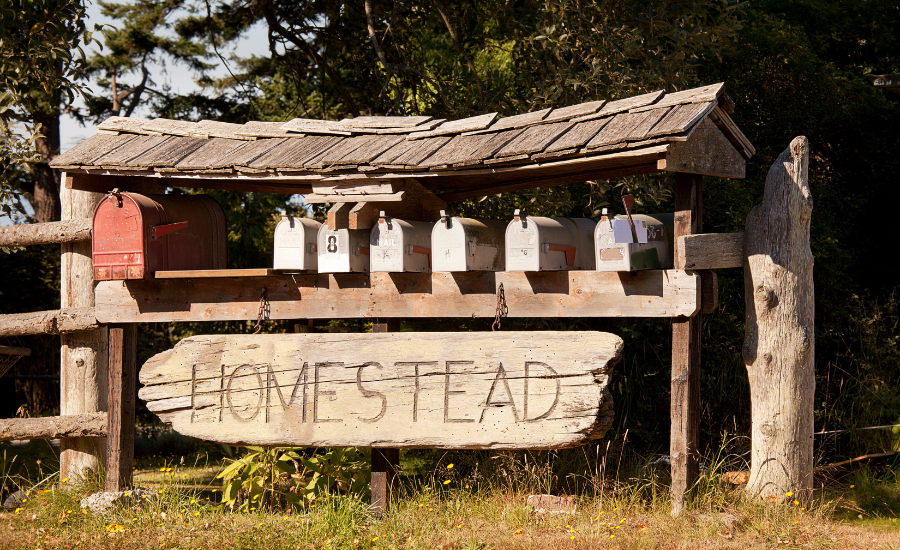
Turning your homestead into a profitable backyard business requires thoughtful planning and a clear understanding of your resources and skills. Consider what products or services align with your expertise and start with those first.
Assess your local market demand to ensure there’s interest in your offerings, and be prepared to experiment with pricing and marketing strategies.
Start small so you can minimize risks, then scale up as you gain experience and confidence. Diversifying income streams can also provide stability, so explore multiple avenues of what I am suggesting below.
Above all, focus on quality, authenticity, and building strong community relationships.
Important Notes:
- Be sure to always check local regulations for compliance; no one wants their dreams derailed over avoidable bureaucratic decisions. It’s best to be upfront about your intentions and obtain proper permissions so that you can begin your journey hassle-free.
- These homestead business ideas are intended to be a broad overview to get the wheels turning for beginning homesteaders, or those who have yet to start a business. I will go much deeper into the finer points of building a viable and comprehensive backyard business design for each category in upcoming articles, so stay tuned!
1. Selling Seeds: Starting a Backyard Seed Business
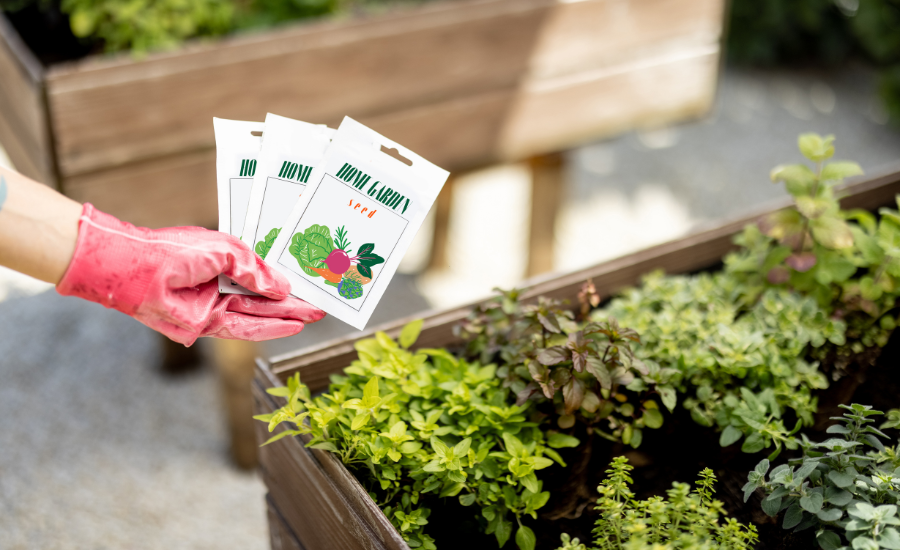
One of the simplest and most rewarding ways to monetize your organic garden is by saving and selling your seeds. Start by collecting seeds from your healthiest, most productive plants. Heirloom and organic seeds are especially popular, as they represent unique, non-GMO varieties that appeal to gardening enthusiasts and health-conscious consumers.
Dry your seeds thoroughly, then package them in small, labeled envelopes. Make sure to include growing instructions for added value.
The market for seeds is vast—think online marketplaces like Etsy, local farmers’ markets that you can research through Local Harvest, or community seed swaps. Promote your seed business by showcasing the beautiful plants they produce. You’re not just selling seeds; you’re offering the promise of a thriving garden filled with nutritious, home-grown produce.
2. Herb Gardens: Growing and Selling Fresh and Dried Herbs

Herbs are versatile, easy to grow, and in high demand for culinary, medicinal, and ornamental purposes. Establish a diverse herb garden with popular varieties like mint, thyme, lavender, and chamomile. Fresh herbs can be sold at markets, while dried herbs and blends make great pantry staples or gift items.
Consider creating value-added products like herb-infused oils, teas, or bath sachets. These can be marketed as artisanal, organic and chemical-free. Whether fresh or dried, herbs offer a steady stream of income and require minimal space.
3. Dehydrated Foods: Turning Excess Harvest into Profitable Snacks
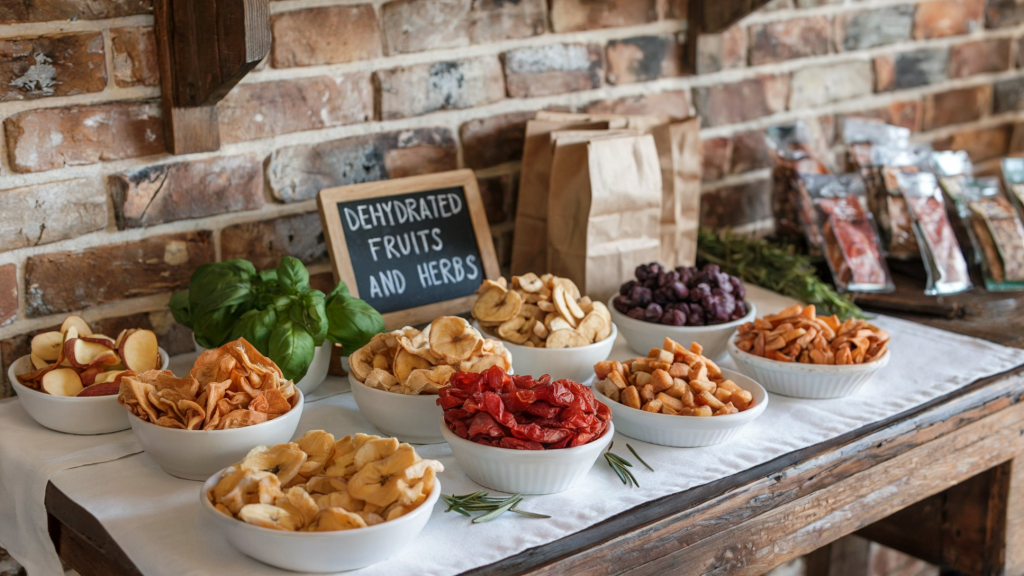
If you often find yourself with a surplus harvest, dehydrating food is an excellent way to preserve it and create delicious snacks. Dehydrated fruits like apple chips, dried tomatoes, and banana slices are popular and reasonably easy, as well as herbs like basil and rosemary. Dehydration not only extends the shelf life of these foods but also enhances their flavors.
Dehydrated meats are a bit more challenging but are a fantastic product for a home-based business, offering high-protein snacks that are shelf-stable and popular with health-conscious consumers. From beef jerky to turkey strips and even exotic options like venison, dehydrated meats cater to a market seeking low-carb, nutrient-dense snacks. They’re perfect for hikers, campers, and busy individuals looking for convenient, flavorful options. With creative seasoning and quality cuts, you can stand out in the growing artisanal food space.

A versatile food dehydrator will greatly speed up production and give consistency for your backyard homestead business.
Package your dehydrated products in resealable bags with attractive labels. Emphasize their health benefits, like being free of preservatives and additives. Market them as wholesome non-GMO snacks, perfect for camping trips or lunch boxes.
Selling your dried foods at farmers’ markets or through a local CSA (Community Supported Agriculture) program can turn your excess produce into a steady income stream.
4. Beekeeping: From Honey Production to Selling Queen Bees
Beekeeping is a versatile business opportunity that offers more than just honey. While honey is a popular and lucrative product, you can also harvest beeswax, pollen, and propolis for additional income. Beeswax can be used to make candles, balms, and salves, while pollen and propolis are sought after for their health benefits.
For those looking to expand, raising and selling queen bees can be a highly profitable niche that can often fetch $30-50 per queen. Queen bees are in continuous demand for starting new hives, and experienced beekeepers often look for reliable sources.
Beekeeping requires patience and knowledge, but the rewards are sweet—both financially and environmentally, as you help support the local ecosystem.
5. Cut Flower Business: Growing Beautiful Blooms for Profit

There’s something undeniably special about a fresh bouquet of flowers, and growing cut flowers can be a profitable addition to your homestead. Choose flower varieties that are popular and easy to grow, such as sunflowers, zinnias, and dahlias. These blooms are not only stunning but also have a longer vase life, making them ideal for selling.
Once harvested, arrange your flowers into eye-catching bouquets. You can sell these at farmers’ markets, set up a roadside stand, or partner with local florists.
Cut flowers offer a burst of color and cheer, making them a delightful product that customers love to buy for special occasions or to brighten up their homes.
6. Starting a Plant Nursery: Selling Seedlings and Potted Plants
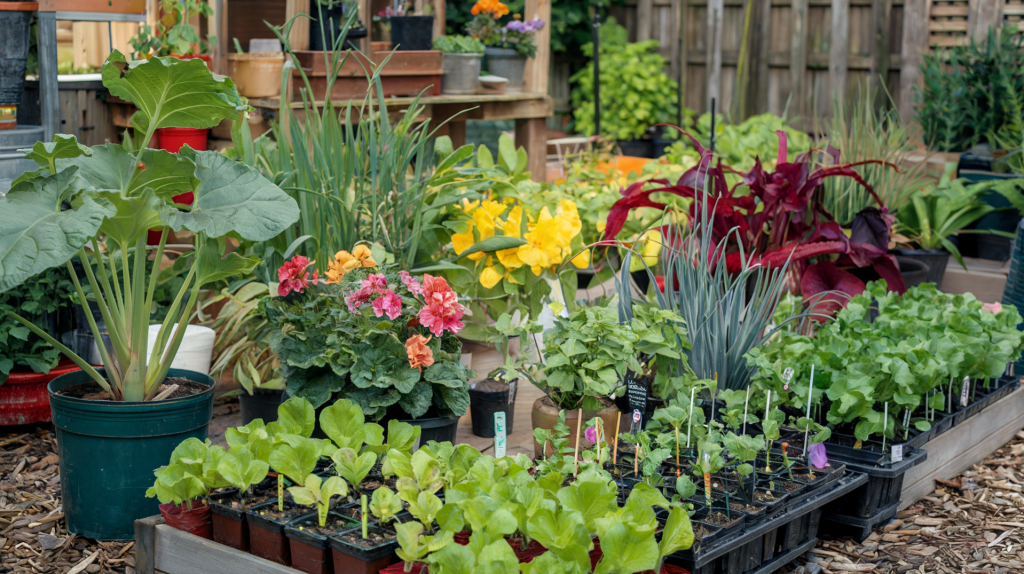
If you love nurturing plants from seed, why not turn that passion into a business by starting a backyard plant nursery? Focus on popular vegetables, herbs, and native plants that are in demand among local gardeners. Propagate your plants in small gardening containers and offer them for sale when they’re strong enough to be transplanted.
Growing organically and using heirloom varieties can set your nursery apart. Connect with local gardening groups and attend plant sales to build a customer base. By offering quality seedlings, you’ll help others start their own gardens while growing your homestead business.
7. Hosting Homestead Tours: Share Your Way of Life

People love to see where their food comes from and learn about sustainable living. Hosting homestead tours is a fantastic way to share your lifestyle while generating income. Plan a tour that showcases your gardens, livestock, and unique features like beekeeping or your plant nursery.
Offer demonstrations, tastings, and interactive activities for visitors — for both adults and kids. You can charge a fee for the tour and sell products like honey, fresh produce, or crafts at the end.
Marketing your tours through social media and local tourism networks can attract a diverse group of visitors eager to experience farm life.
8. Teaching Homestead Courses: Share Your Knowledge and Earn Income

With so many people interested in self-sufficiency and organic living, there’s a huge market for homesteading courses. Whether it’s gardening, preserving food, or raising chickens, sharing your expertise can be both rewarding and profitable. Offer workshops on-site, online classes, books and eBooks, or private one-on-one sessions.
Structure your courses to be informative, hands-on, and interactive. Try to design your courses for different levels of interest: beginner, intermediate and proficient. At the proficient level, you can target self-sufficient energy, community building, permaculture gardening and other more complex designs. But be sure to also include courses for children and young adults and help educate future generations.
Promote your classes on social media, through local community boards, and at farmers’ markets. Teaching others not only generates income but also helps spread the knowledge of self-reliant living practices.
9. Market Gardening: Growing and Selling Fresh Produce Locally
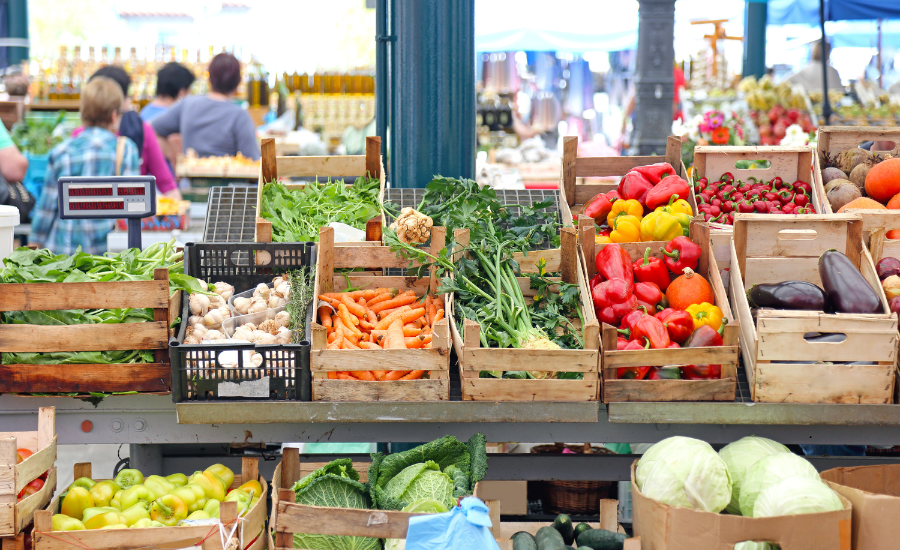
Market gardening is one of the most traditional and effective ways to monetize your homestead’s produce. Plan your garden with high-demand survival crops like tomatoes, lettuce, carrots and squash. Focus on quality and variety to attract a loyal customer base.
Sell your produce at farmers’ markets, join a CSA program, or supply local restaurants. Look into the concept of CrowdFarming that connects farmers and homesteaders directly to an organic food network.
Building strong relationships with your customers and offering seasonal favorites can keep them coming back for more. By growing fresh, organic produce, you contribute to the local food movement while turning your garden into a profitable venture.
10. Offering Food Storage Solutions: Renting Root Cellar Space
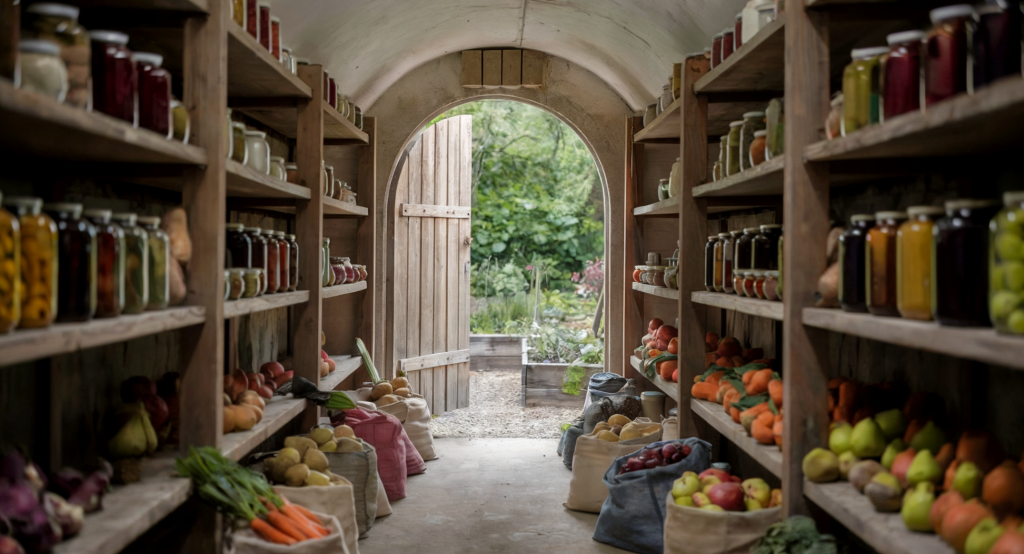
Not everyone has the space or knowledge to properly store fresh produce, but if you have a well-maintained root cellar, you can offer food storage solutions to local gardeners and small-scale farmers. Root cellaring is ideal for storing crops like potatoes, carrots, and apples, as they maintain a consistent temperature and humidity level.
Market your storage space as a convenient and affordable option for those looking to preserve their harvest without investing in their own infrastructure. Keep the cellar organized and ensure optimal conditions to maintain the quality of stored produce. You can also add refrigeration and freezer space for an even wider range of offerings.
This type of business is admittedly the most challenging to operate, but there is not much competition. You can carve out a unique and special homesteading business to generate steady long-term income while providing a valuable resource for your community.
Embracing the Entrepreneurial Spirit of Homesteading
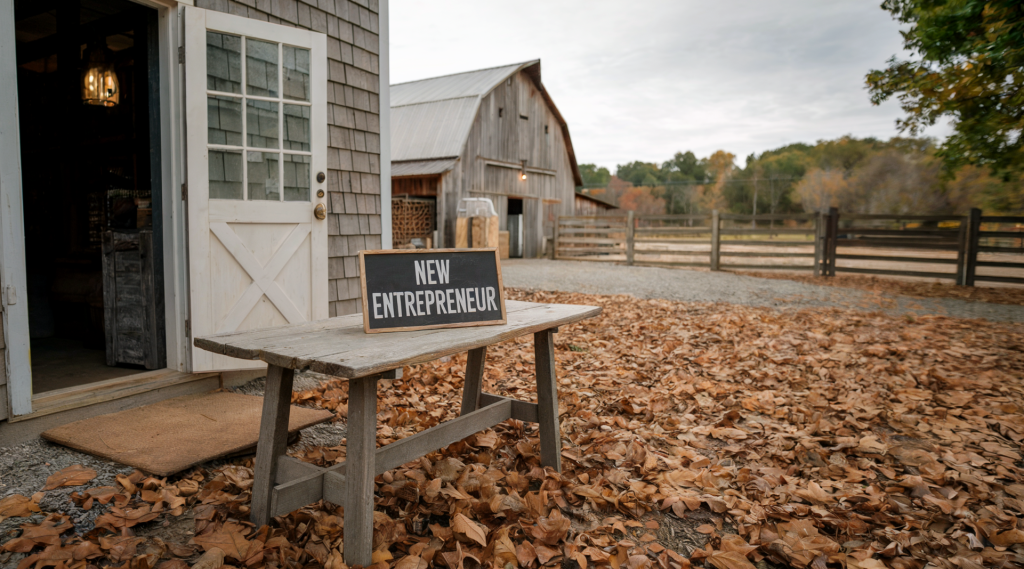
There are endless ways to turn your homesteading skills and products into a thriving business. Start small, test different ideas, and don’t be afraid to get creative. Each of these backyard business ideas not only offers a path to financial growth but also deepens your connection to the land and your community.
Embrace the journey, and watch your homestead transform into a vibrant, productive enterprise!
See Our Latest Posts
- 5 Best Meat Dehydrators for DIY Jerky on Amazon (2025)
- Urban Homestead Hacks from Backyard to Balcony
- Creative Strategies for Frugal Homesteading
- How to Make Your Own Organic Fertilizer
- Easy-Prep Homemade Salad Dressings Using Organic Garden Herbs
Write A Guest Post For Us!
Are you passionate about gardening, raising livestock or preserving food? We’re excited to announce that we’re now accepting guest posts for all aspects of homesteading!

